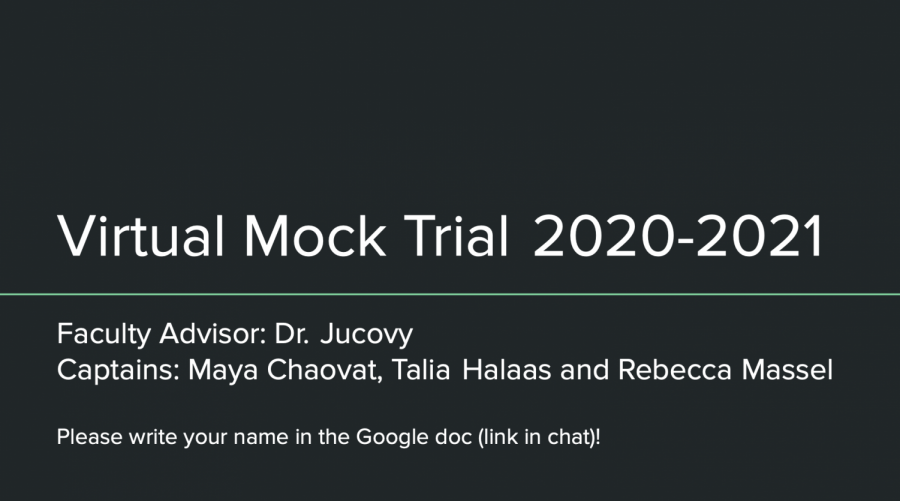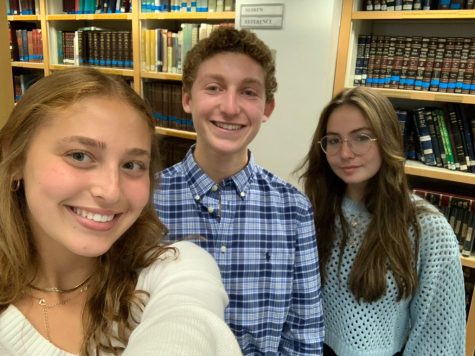Academic Clubs Competing on Zoom
This year, many clubs at Ramaz are meeting virtually due to Covid-19. Academic clubs such as Mock Trial, Model Congress, Model UN, and College Bowl revolve around lively in-person conferences and competitions, so the transition to virtual programming can interfere with the structure of the clubs.
Different academic clubs are having different experiences on Zoom. Some clubs, like Mock Trial and Model Congress, are flourishing on virtual platforms. There has already been a Model Congress conference, and it went smoothly. “Students seem to be more focused on Zoom than in-person,” said Dr. Jucovy, faculty advisor of both clubs. “It’s nice to see them coming prepared and eager to participate.” At the beginning of the year, Rebecca Massel ’21, one of the Mock Trial captains, had some concerns. “Making objections is critical to a Mock Trial meet. I was nervous that it would be very choppy on Zoom with everyone interrupting one another,” she said. Massel explained that this did not turn out to be an issue; everyone presenting simply leaves themselves unmuted, so the conversation can flow as easily as possible in the online format
Other club leaders have similar positive feelings about virtual meetings. “Like all other clubs, the Model UN team has been holding all its meetings on Zoom,” said Gabby Ostad ’21, who is a co-captain of Model UN. “While I prefer live meetings because I like to see my teammates in-person, our online meetings have been great.”
YUNMUN, the Yeshiva University Model United Nations conference, will take place virtually this year. “Having online meetings is great preparation for our conferences, since they will all be happening online,” said Ostad.
Debate will also operate entirely on Zoom. “Meetings and debates are easier to get to— more kids are willing to go to a Zoom debate in Long Island than an actual debate there,” said Mr. Deutsch, who is the faculty advisor of the team. A positive aspect of online debates is that travel time is eliminated, which can add up to four hours per trip. Most academic clubs online are thriving, despite the barriers of a screen.
However, the future of some clubs this year is still uncertain. “I’m really not sure [how College Bowl is going to work],” said Dr. Rotenberg, faculty advisor of College Bowl. “I think the commissioner [of Yeshiva League College Bowl] has a plan, but she hasn’t shared it yet.” Organizing virtual clubs can be complicated, especially when ten or more schools are involved in the planning process. Those in charge of choosing dates and making sure everything runs smoothly often face countless obstacles in the process.
Regardless, it is still early in the year, and the majority of academic clubs are having a positive experience online. There seem to be more beneficial aspects of virtual programming than one might have initially thought, and many students are enjoying their experiences online.




